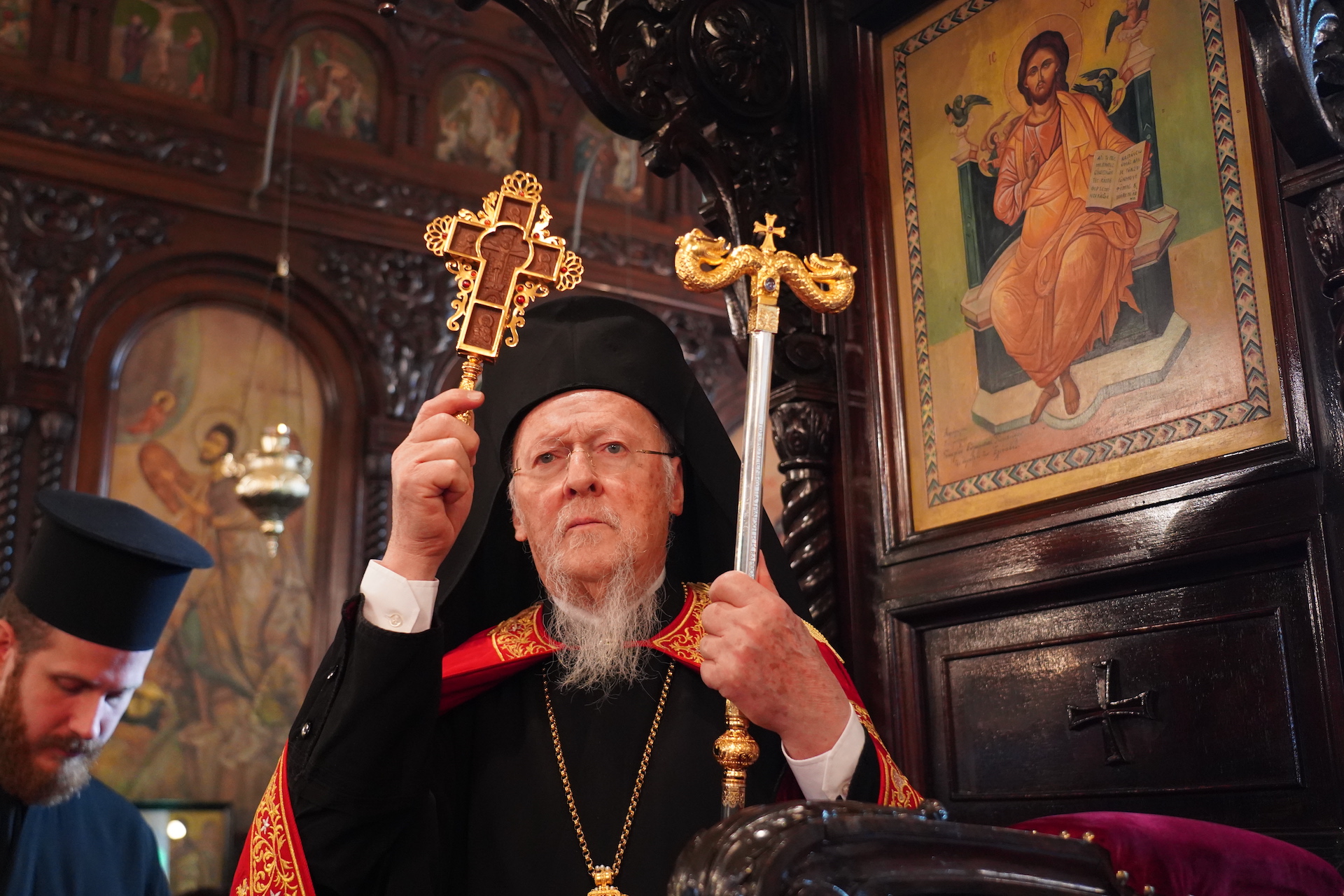Ecumenical Patriarch Bartholomew: “Medical science enhances life’s quality, faith imbues existence with purpose”


During a recent visit of a group of internists to the Phanar, His All-Holiness Ecumenical Patriarch Bartholomew emphasised the significant role of science and technology in modern society.
He expressed deep appreciation for medical science and underscored the value of the medical profession, recalling that the Ecumenical Patriarchate had officially honoured the work of physicians and doctors by establishing a feast day known as the Synaxis of all the Holy Doctors.
In his homily, Ecumenical Patriarch Bartholomew welcomed the visitors to the Phanar, the historic Centre of Orthodoxy, praising their dedication to humanity and their sacred mission. He highlighted the establishment of a special Sunday in October, designated by the Holy Synod, to honour the contributions of medical science and its practitioners to humanity, emphasising the divine gift of scientific knowledge as recognised by the Orthodox Church. “It is with great pleasure that we welcome you to the Phanar, the historic Centre of Orthodoxy. We honour your offering to humans, your high and subtle ministry, your sacred mission,” he said.
He also stressed: “Without a doubt, science and technology stand as the formidable forces of our era, their remarkable accomplishments having profoundly reshaped our world and lifestyles. Within Christian doctrine, scientific knowledge is revered as a precious endowment bestowed upon humanity by the divine. This principle finds validation in the pronouncements of the Holy and Great Council of the Orthodox Church (Crete, 2016), which affirm: ‘For the Orthodox Church, mankind’s capacity for scientific exploration of the world constitutes a gift from God.’”
While acknowledging the transformative power of science and technology in shaping the modern world, Patriarch Bartholomew cautioned against the tendency of some scientists to overlook the importance of faith. He emphasised that faith is also a profound force, offering meaning to life and revealing the eternal dimension beyond mortality: “Naturally, there exist scientists who, in their pursuit of knowledge, undervalue the significance of faith. Yet, they are misguided, for faith, too, possesses profound power—a gift of immense value. While medical science preserves and enhances life’s quality, faith imbues existence with purpose and unveils the eternal realm, granting a life transcendent over the grasp of mortality.”
Drawing from Christian tradition, Ecumenical Patriarch Bartholomew discussed the theological significance of health and disease, viewing them as aspects of salvation or alienation. He referred to Christ as the “physician of souls and bodies,” emphasising the healing power of faith and its role in restoring communion with God, humanity, and creation.
His All-Holiness Ecumenical Patriarch Bartholomew concluded by bestowing blessings upon the visitors and their loved ones, invoking the grace and mercy of God upon them.
Source: Ecumenical Patriarchate




